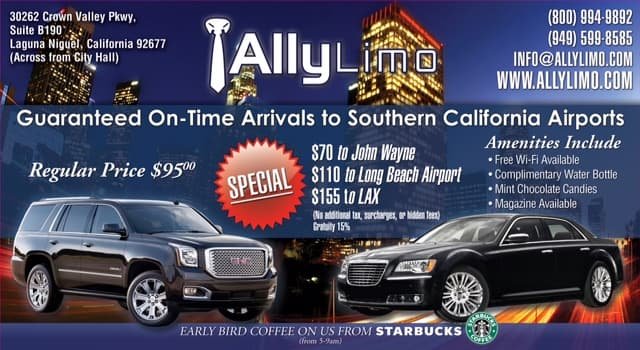Are you ready to roll in style and make a profit? Buying a limo and starting a business may seem like a bold move, but it can be a lucrative one. With the right strategies and market demand, you could be on your way to success in the luxury transportation industry.
Owning a limo business can offer numerous benefits. Not only does it allow you to tap into a growing industry, but it also presents opportunities for high-profit margins. According to recent market research, the limousine and town car services industry has experienced steady growth over the past five years. Additionally, with the increasing demand for luxury transportation for special events like weddings or corporate gatherings, there is a consistent market willing to pay for top-notch service. By investing in a high-quality fleet and delivering exceptional customer experiences, you can position yourself as a leader in this competitive market. So, hop aboard and make your dream of owning a limo business a reality!
Thinking about buying a limo and starting a business? Let’s weigh the pros and cons. While owning a limo business can be profitable, it’s important to consider some factors. Market demand, maintenance costs, competition, and regulatory requirements are essential considerations. Additionally, you’ll need to develop a solid business plan, marketing strategy, and ensure you have the necessary licenses. Conduct thorough research and consult with industry experts to determine if it’s a good idea for you.

Is Buying a Limo and Starting a Business a Good Idea?
Starting a limousine business and purchasing a limo can seem like an exciting venture. The allure of luxury vehicles, glamorous events, and the potential for profit can be enticing. However, before diving into this business opportunity, it’s important to thoroughly consider the various factors involved. In this article, we will explore the pros and cons of buying a limo and starting a business in the industry. From the initial investment to ongoing expenses and market demand, we will provide you with valuable insights to help you make an informed decision.
1. Understanding the Initial Investment
Purchasing a limo for your business requires a significant upfront investment. Depending on the type and model of the vehicle, the cost can range from $50,000 to over $100,000. Aside from the vehicle itself, you will need to consider additional expenses such as insurance, registration fees, and any necessary modifications or maintenance. Furthermore, establishing a business entity and obtaining the necessary licenses and permits will incur further costs. It’s crucial to have a clear understanding of the financial implications before making a decision.
Starting a limo business also involves ongoing expenses. These include fuel costs, regular maintenance and repairs, driver salaries, advertising and marketing, and other operational expenses. It’s essential to have a comprehensive business plan that accounts for these costs and ensures long-term profitability. Additionally, keep in mind factors such as seasonal fluctuations in demand and competition within the industry, as these can impact your revenue and overall success.
The Benefits of Buying a Limousine
Investing in a limousine and starting a business can offer several benefits. Firstly, the luxury transportation industry often caters to high-end clients who are willing to pay a premium for premium experiences. This can create opportunities for higher profit margins compared to traditional taxi or ride-sharing services. Additionally, establishing relationships with event planners, wedding venues, and corporate clients can provide a steady stream of bookings and repeat business. The exclusivity and prestige associated with limousine services can also contribute to customer loyalty and word-of-mouth referrals.
However, it’s important to consider the potential challenges and disadvantages as well. For instance, the initial investment and ongoing expenses can be substantial, making it crucial to carefully manage finances. Moreover, the luxury transportation industry is highly competitive, and differentiating your business from competitors can be challenging. Marketing strategies, exceptional customer service, and unique offerings are key factors in standing out in this crowded market.
2. Target Market and Seasonal Demand
Before diving into the limousine business, it’s essential to assess the demand in your target market. Conduct thorough market research to understand the demographics, preferences, and transportation needs of potential customers. Consider factors such as the presence of corporate headquarters, convention centers, tourist attractions, airports, and local events that can drive demand for luxury transportation services. Additionally, evaluate the competition in your area and identify any gaps or niches in the market that your business can fill.
Another crucial aspect to consider is the seasonality of the demand. Limousine services often experience fluctuations in demand throughout the year. While prom and wedding seasons may bring a surge in bookings during certain months, other periods may be slower. It’s important to plan accordingly by diversifying your services, targeting business clients, or offering special promotions during off-peak seasons to maintain a steady flow of customers.
Market Demand and Competitor Analysis
Conducting a thorough competitor analysis is crucial to understanding the market demand and identifying opportunities for your limousine business. Research existing service providers in your area, analyze their offerings, pricing strategies, customer reviews, and overall reputation. This will help you identify gaps in the market that you can exploit and differentiate your business from competitors. Additionally, seek feedback from potential customers to understand their pain points and preferences in luxury transportation services. This information can be invaluable in shaping your business strategy.
Furthermore, consider the potential growth opportunities in the market. Evaluate emerging trends such as eco-friendly transportation or specialized services like luxury airport transfers or wine tours. By staying ahead of the curve and adapting to changing customer needs, you can position your business for long-term success.
3. Managing Operations and Ensuring Customer Satisfaction
Running a limousine business involves more than just owning a luxury vehicle. It requires effective operations management, meticulous attention to detail, and a strong focus on customer satisfaction. From maintaining a fleet of well-maintained and clean vehicles to hiring professional and reliable drivers, every aspect of the business must be executed with excellence.
Customer satisfaction is paramount in the luxury transportation industry, as it is often the key to repeat business and positive referrals. Implement strategies to ensure exceptional service, such as polite and knowledgeable drivers, on-time arrivals, and personalized experiences. Investing in user-friendly booking platforms and efficient communication systems can also contribute to a seamless customer experience.
Additionally, prioritize safety and adhere to all relevant regulations and industry standards. Conduct regular vehicle inspections, background checks on drivers, and provide adequate training to ensure the utmost safety for both your customers and employees. Going above and beyond in these areas can set your business apart from competitors and build a strong reputation in the industry.
Staying Ahead of the Competition with Technology
Incorporating technology into your limousine business can be a game-changer. Explore the use of mobile apps or online booking systems to make the reservation process more convenient for customers. Consider implementing GPS tracking systems to optimize routes and provide real-time updates to clients. Embracing technology can improve efficiency, streamline operations, and enhance the overall customer experience, giving your business a competitive edge.
Statistics show that the limousine and luxury transportation industry is expected to grow steadily in the coming years. With an increasing number of individuals and businesses seeking premium transportation services for various occasions, there are ample opportunities for entrepreneurs in this field. By carefully evaluating the potential risks and benefits and implementing effective strategies, starting a limousine business can indeed be a good idea.
In conclusion, buying a limo and starting a business in the luxury transportation industry can be both rewarding and challenging. It requires careful consideration of the initial investment, ongoing expenses, target market, competition, and operational management. Success in this industry relies on providing exceptional service, understanding customer preferences, and staying ahead of the competition. With thorough research, planning, and a commitment to excellence, you can build a successful limousine business and capitalize on the growing demand for luxury transportation services.
Key Takeaways
- Starting a limo business can be a good idea if you carefully consider the costs and potential demand in your area.
- Research the market and understand the competition before investing in a limo and starting your own business.
- Building a strong network and establishing partnerships with event planners and hotels can help attract customers.
- Provide exceptional customer service to differentiate your business and generate positive word-of-mouth.
- Continuous marketing and adapting to changing customer needs are essential to sustain and grow your limo business.
Frequently Asked Questions
Thinking of buying a limo and starting a business? Find answers to common questions below.
1. Can I make a profit by buying a limo and starting a business?
Yes, it is possible to make a profit by buying a limo and starting a business. However, success will depend on various factors such as market demand, competition, and how well you manage your business. Conduct thorough market research to understand the demand for limo services in your area and determine if it is a viable business opportunity. Consider factors like population size, tourism trends, and the availability of other transportation options. Additionally, create a detailed business plan outlining your target audience, pricing strategy, marketing approach, and operating costs to ensure a profitable venture.
It’s important to note that the limo industry can be competitive, so finding a unique selling point or a niche market can greatly increase your chances of success. Providing excellent customer service, maintaining a well-maintained and luxurious fleet, and offering competitive pricing are essential to attracting and retaining customers.
2. What are the costs associated with buying a limo and starting a business?
Buying a limo and starting a business involves various costs that you need to consider. The primary expense is purchasing the limousine itself, which can vary depending on the model, age, and condition. Additionally, you’ll need to factor in licensing and permits, business insurance, maintenance, fuel, and marketing costs. It’s important to budget for these expenses and ensure you have enough capital to cover them, especially during the initial stages of your business when revenue might be limited.
Consider if you will buy a new or used limo, as this can affect the upfront cost and ongoing maintenance expenses. Evaluate your financial situation and determine if you need to secure funding, either through personal savings, loans, or investors. Carefully research and compare prices, and don’t forget to include any additional costs like vehicle customization or branding.
3. Do I need any special licenses or permits to operate a limo business?
Yes, you will likely need specific licenses and permits to legally operate a limo business. The requirements can vary depending on your location, so it’s crucial to research the regulations in your area. Typically, you will need a commercial driver’s license (CDL) with the appropriate endorsements to drive a limousine for hire. You may also need to obtain a special permit or license from your local transportation authority or department of motor vehicles.
In addition to driver’s requirements, you may be required to register your business, obtain commercial auto insurance, and comply with certain safety and vehicle inspection regulations. In some cases, you might also need to pass background checks or drug tests. It’s essential to thoroughly understand the legal requirements and ensure compliance to avoid any penalties or complications down the line.
4. How can I market my limo business effectively?
To effectively market your limo business, consider the following strategies:
First, identify your target audience and tailor your marketing efforts accordingly. Understand their demographics, preferences, and needs to create compelling marketing messages that resonate with them. This may involve targeting special occasions like weddings, proms, or corporate events.
Next, establish a strong online presence by creating a professional website and utilizing social media platforms. Showcase your fleet, highlight your exceptional customer service, and engage with your audience through informative and visually appealing content. Encourage satisfied customers to leave positive reviews and testimonials on platforms like Google and Yelp to build credibility.
5. How can I differentiate my limo business from competitors?
To stand out from the competition, consider the following strategies:
First, focus on providing exceptional customer service. Train your staff to be professional, courteous, and attentive to customer needs. Respond promptly to inquiries and feedback, and go the extra mile to exceed customer expectations. Offering additional perks like complimentary beverages or personalized experiences can also set you apart.
Second, maintain a well-maintained and luxurious fleet. Regularly clean and inspect your vehicles to ensure they are in top condition. Consider investing in modern amenities and technology to enhance the customer experience, such as Wi-Fi, entertainment systems, and advanced climate control.
Finally, consider targeting a specific niche market. Specialize in a particular type of event or cater to a specific demographic. By offering a unique and customized experience, you can attract customers who are looking for a specialized service that caters to their specific needs.
To sum it up, the aim is to make the tone engaging and easy for a 13-year-old to understand. Here are the main points in two paragraphs:
Technology is evolving rapidly, and we are constantly surrounded by artificial intelligence. AI is being used in various ways, from voice assistants like Siri and Alexa to self-driving cars. It helps us with tasks, provides information, and makes our lives easier. However, while AI can do incredible things, it’s important to remember that it is created by humans and may have limitations. We need to use AI responsibly, ensuring it respects privacy, is fair, and doesn’t perpetuate biases. It is also crucial to understand how AI works and be aware of the ethical considerations surrounding its use.
As AI continues to advance, its impact on society will only grow. It has the potential to improve healthcare, education, and many other areas. AI can help us solve complex problems and make better decisions. However, we must ensure that AI development is guided by ethical principles and addresses potential risks. It is up to us to shape the future of AI in a way that benefits everyone and safeguards our values. So, let’s embrace the benefits of AI while also being mindful of how we use it and the impact it can have on our lives.






